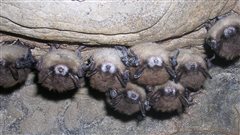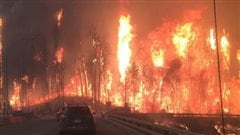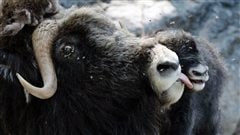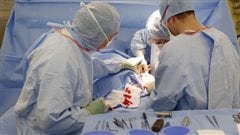Between 2004 and 2013, there were just under 3,000 cases of malpractice complaints and settlements from medical errors in Canada The information comes from a new study by the Canadian Patient Safety Institute (CPSI), in conjunction with key healthcare stakeholders,… »
Marc Montgomery
With a passion for anything antique with an engine, and for Canadian and world history, Marc comes with a wealth of media experience. After DJ work at private radio in southern Ontario, and with experience in Canadian Forces radio and tv in Europe, the state broadcaster in Austria (Radio 3), and the CBC in Ottawa and Montreal, he was the host of the immensely popular CBC and RCI show, "The Link". He is now part of the new RCI online team producing stories from and about Canada from coast to coast.
Economy, Environment & Animal Life, International, Internet, Science & Technology
White nose disease of bats reaches west coast
Biologists and conservationists in west coast British Columbia are now very concerned about ‘white nose syndrome” in bats. The disease is actually a whitish fungus that attacks the fleshy portions of bats, around their muzzles near the nose, hence “white… »

Fort McMurray wildfire too hot to control, more evacuations
It’s completely out of control. About 90,000 people have now been evacuated from the area around Ft McMurray in northeastern Alberta Harrowing tales of narrow escapes as the rushing flames engulfed both sides of roads leading out of town. Tuesday… »

Health, Internet, Science & Technology
Vitamin D: studies show importance for newborns
Two new studies found that when the recommended regular dosage of vitamin D was given to newborns, they had stronger bones. This wasn’t surprising. But there was an interesting and unexpected finding as well. Hope Weiler (PhD) was the supervising researcher.… »

Economy, Immigration & Refugees, International, Politics, Society
Auditor General’s report: Canadian citizenship without proper checks
Canada’s Auditor General released his spring report this week. One of the areas Micheal Ferguson’s report looked at was Canada’s immigration system. The report shows that several people and possibly dozens managed to be accepted as Canadian citizens through fraud… »

Environment & Animal Life, Society
Huge wild fire inferno, massive evacuation- Alberta town
It is the largest emergency evacuation in Alberta history. Record breaking heat and no rain in the past few weeks have left forests and grasses in the prairie provinces tinder dry. An image of the fire Tuesday as it burned… »

Arts & Entertainment, International, Society
History: May 3, 1915, the First World War’s most famous poem
Arguably the most famous poem of the First World War, “In Flanders Fields”, was penned by a tired and distraught Canadian doctor on this day, near a field hospital in the midst of a terrible battle on May 3, 1915.… »

Arts & Entertainment, International, Society
“Shiver me timbers”: Canadian professor on pirates of old
A Canadian history professor who’s been studying the lives of pirates of old, says they really didn’t say “aahhaar”, “shiver me timbers”, nor probably a lot of other phrases we hear in popular culture today. Andrew Parnaby (PhD) teaches history… »

Environment & Animal Life, International, Internet, Science & Technology
Muskox rump hair indicative of climate conditions and diet
Forensic scientists have long used chemical and other analyses of hair and teeth to determine such things as diet of an individual, usually for historical purposes. Now researchers at the Arctic Research Centre, Aarhus University in Denmark, are using similar… »







